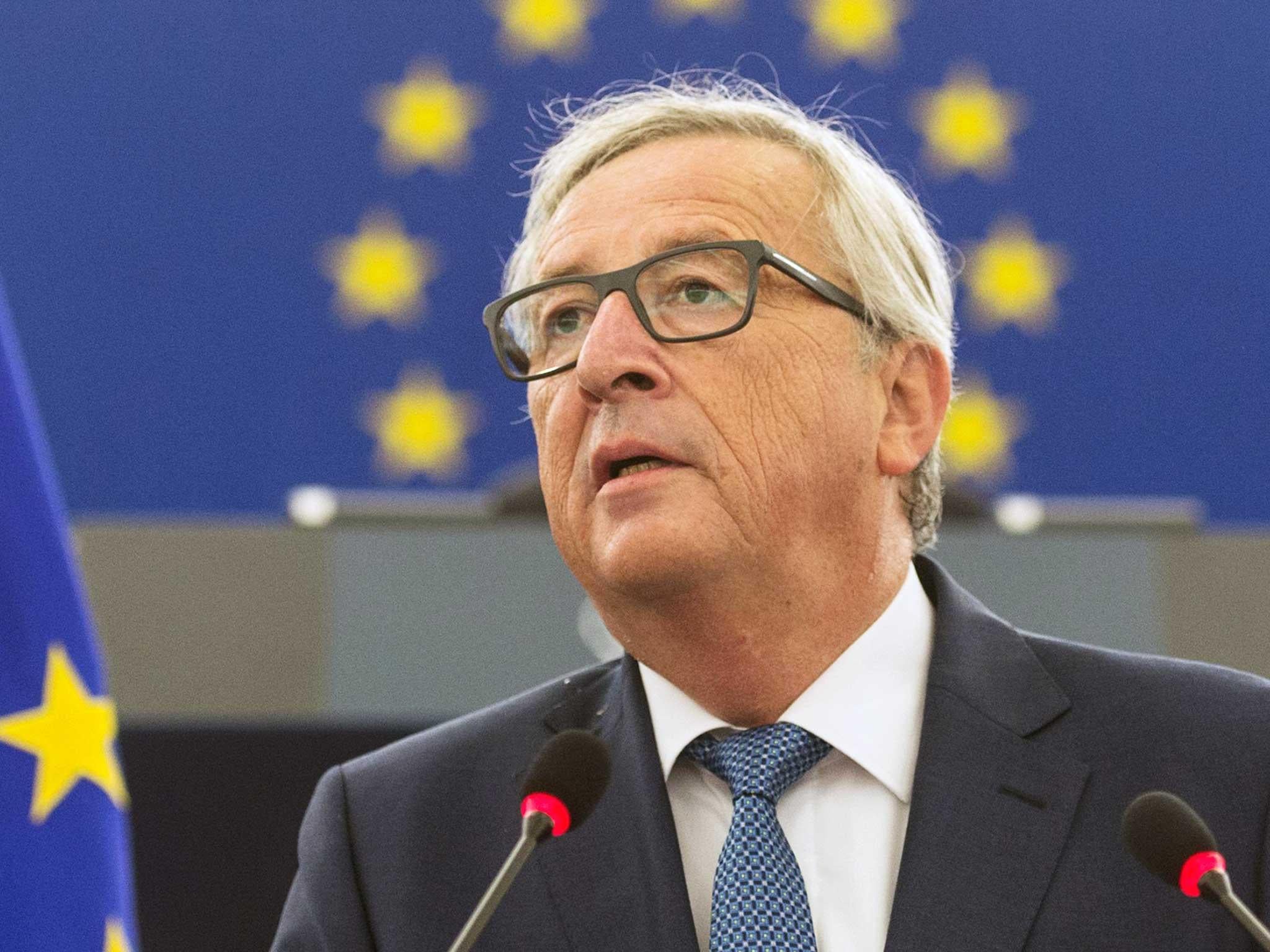Journalist says YouTube tried to manipulate her interview with EU Commissioner Jean-Claude Juncker
Mr Juncker backed a new tax against parent company Google days before

A journalist has claimed that YouTube tried to manipulate her interview with the European Commission president Jean-Claude Juncker – days after his office backed a new tax that could cost the firm millions.
Laetitia Birbes, a popular videoblogger, interviewed Mr Juncker for a project hosted by YouTube but says representatives of the service had asked her to run difficult questions past a press officer beforehand.
“I found out they expected for me to ask only very soft questions,” Ms Birbes said in a video posted on Facebook on Sunday.
“The whole point was to give advertisement to Juncker. At the beginning I realised that YouTube was trying to gently influence me. Then it got more serious and I felt threatened.”
The allegation comes at a sensitive time for YouTube and its parent company Google. Mr Juncker used his state of the union address last week to endorse a so-called “Google tax” that would see search engine and video hosting websites’ income taxed and given to content creators.
Google has previously heavily criticised such a tax, last week saying it would “hurt anyone who writes, reads or shares the news”.
Mr Juncker said in his address that he wants “journalists, publishers and authors to be paid fairly for their work, whether it is made in studios or living rooms, whether it is disseminated offline or online, whether it is published via a copying machine or commercially hyperlinked on the web”.

The comments were widely interpreted as backing the tax on companies that profit from content created by other people.
The episode also comes after Mr Juncker’s office spearheaded a multinational tax crackdown against US tech giants in EU member states. Apple was ordered by the Commission to pay £11bn in back taxes to Ireland after it was ruled that Irish tax breaks broke state aid rules.
A spokesperson for Google said the incident had been misinterpreted and that advice had simply been on how to be “respectful”.
“Laetitia had some tough questions for President Juncker and before the interview, asked for our advice on how to phrase them,” the spokesperson said.
“Our colleague encouraged her to be respectful, rather than confrontational – that is all that happened here.”
A commission spokesperson denied any knowledge of the alleged “soft-balling” and said Mr Juncker would not have known questions in advance.
“For the commission and the president, we had no knowledge of the questions asked, as it is the case for any interviews the president is giving,” she told the Politico EU website.
“The president was very happy with the interview and thanks Debating Europe to have organised it in association with Euronews and YouTube, and the creators who participated in it.”
Join our commenting forum
Join thought-provoking conversations, follow other Independent readers and see their replies
0Comments